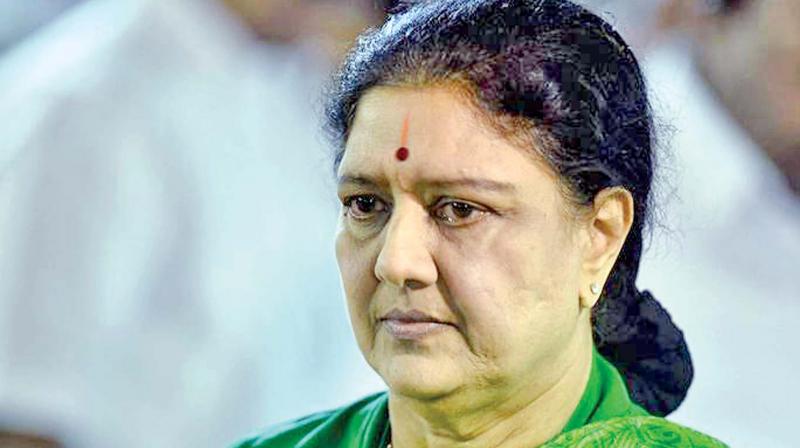VK Sasikala committed no offence
The State is duty bound to safeguard these rights of the convict at the cost of the State.;

In the matter of administration of criminal justice, the job of the judiciary stops with the work of deciding the guilt or innocence of the accused. Once an accused is declared as guilty, the judiciary decides the punishment and forward the accused to the prison with an endorsement about the sentence imposed. On such forwarding, the job of the judiciary is over and it is in the domain of the executive to execute the sentence.
While executing the sentence, the prison officials are guided by the provisions in the prison manual and the laws governing prison like Prisons Act, Transfer of Prisoners Act. Further, even after such pronouncement of guilt by the Court, the fundamental rights of the prisoners are not taken away. The prisoners continue to enjoy the fundamental right guaranteed under Ar.14 and 21 of the Constitution of India subject to a reasonable restriction which are incidental to the confinement of such prisoner in a prison. So, on imprisonment of a person in prison, the prisoner continues to enjoy his or her fundamental right including right to food, right to health, entertainment, pollution free environment, safety etc.
The State is duty bound to safeguard these rights of the convict at the cost of the State. Hence, the convict is entitled to a healthy food of reasonable quantity inside the prison during his or her confinement. But, the convict cannot insist for any particular type of food. In case, the food provided by the prison administration is not compatible to a convict, she or he can, at her cost have the food desired by her or him and the prison administration cannot deny the same. Denial of such compatible food would prevent the prisoner from consuming the food itself which would affect the health.
In the case of Sasikala, to execute the sentence imposed by the Supreme Court, Sasikala has been confined in prison. But, she has been allegedly permitted to cook her own food which is not at all an offence. If the co-prisoners are used for the purpose, it might be a case of prison indiscipline and she can be imposed punishment as per the provisions of the prison manual. But, it cannot be a substantive offence nor it be taken as a case of disobeying the judgment of the Supreme Court.
The prison authorities are having necessary discretion in this regard and to suit any particular circumstance, they can permit the convict to enjoy any privilege without violating any provision of law or imposing additional burden on the exchequer.
Take the case of Muslims confined in prison during the month of Ramzan. Rig-ht to observe fasting in this month is their religious right and it is guaranteed to them under Art.25 of the Constitution of India.
During this month, they take food only in the early morning be-fore sun rise and after sunset. During the day time, they would not take food.
The prison administration cannot insist such prisoners to consume food during day time since it would amount to infringing the Constitutional ri-ght of such prisoners. But, there is no express provision in that regard in prison manual.
The executives are not slaves to the judiciary but only a coordinate organ to maintain rule of law and both organs are bound to respect the fundamental rights of the citizens both inside and outside the prisons.
(A.Sirajudeen is Senior Advocate and author of the book, ‘The Rights of Prisoners & Criminal Investigation and Trial’)

